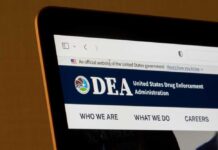A criminal trial in Panama has commenced over the Panama Papers controversy involving money laundering. Among the 27 defendants are the founders of the now-defunct legal firm Mossack Fonseca, Jurgen Mossack, and Ramon Fonseca Mora.
Affluent people’s use of offshore firms to help conceal their riches was exposed in 2016 when 11 million bank papers were leaked. A computer breach at Mossack Fonseca occurred in 2017, leading to the misrepresentation of information that was made public. If they are proven guilty, Mossack and Fonseca risk a possible twelve-year jail sentence.
The leak linked more than a hundred politicians, including former presidents of state and government, billionaires, and sports figures. It also revealed the alleged use of tax havens, such as Panama and the British Virgin Islands, by influential individuals and families to conceal their riches. In 2016, the documents were shared with the International Consortium of Investigative Journalists after being leaked to the German publication Suddeutsche Zeitung.
The court ordered that the business did not handle or try to conceal money taken from Brazil as part of an extensive corruption case involving the state oil corporation dubbed Lava Jato (the Car Wash), and two years ago, Mossack and Fonseca were both cleared of separate counts. Journalists sifting through the Panama Papers uncovered offshore firms tied to over a hundred politicians from different countries, including twelve heads of state. Among them was $2 billion held by an offshore corporation linked to Russian cellist Sergei Roldugin, a Putin confidant.
Nations across the globe launched investigations to recoup unpaid taxes concealed by offshore corporations after the release of the Panama Papers. It was reported that exchequers worldwide had collected over $1.36 billion in fines and penalties for unpaid taxes by 2021, with $253 million recovered by HMRC in the UK.














